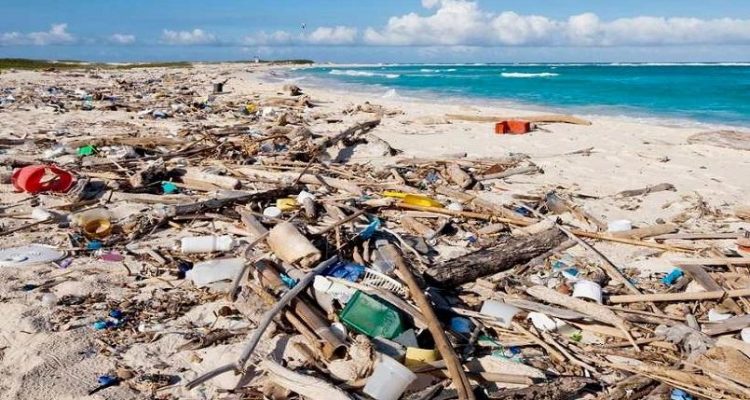Escalating Waste Generation Requires Drastic Action
October 4, 2018 | Expert Insights
Global waste generation is expected to double by 2050 given the current system in many regions. As the damaging effects of waste become more apparent, many countries and communities are taking active steps to mitigate the situation and change the global trend.
Background
The world’s waste management problem is increasing at a dramatic rate. After the industrial revolution, the system of using products and disposing of them easily became the norm. As people’s income – and subsequently consumption – increased, their waste also increased.
Over 2 billion tonnes of waste were generated globally in 2016. This estimate only includes municipal solid waste. Industrial waste is also a significant source of waste. Additionally, atmospheric waste – in the form of carbon dioxide – is also a factor, with over 30 billion tonnes generated annually.
While the developed countries have contributed disproportionately more waste, the developing countries are quickly reaching the same stage. India alone generates approximately 5.6 million tonnes of plastic waste a year. Western countries were dependent on emerging countries for recycling waste but countries like China are now concerned about their own environmental impact and have banned the import of plastic. Now, countries across the world need to identify sustainable waste management practices while also developing systems to reduce the amount of waste generated in the first place.
Read more of our wastewater management coverage here and electronic waste coverage here.
Analysis
The World Bank recently reported that global waste generation is expected to double by 2050 if current trends of countries producing waste continue. European and North American countries are expected to produce 25 percent more waste by 2050. Waste volumes will increase by 50 percent in East Asia, 100 percent in South Asia and 300 percent in sub-Saharan Africa, resulting in an exponential global increase of waste.
The report indicates that the link between economic growth and waste generation is troubling. Measures need to be taken to prevent the rise of the standard of living from automatically resulting in an increase in waste production. Waste-filled landfills are at increased risk of fires, resulting in high temperatures and the spread of harmful smog. In addition, toxic runoff can contaminate the local water supply and permeate the soil. The incidences of diarrhea and respiratory infections are higher in areas with infrequent waste collection.
Across the world, countries are starting to realize the wide range of detrimental effects involved in improper waste management and excessive waste generation. The UK developed a Waste Reduction Fund to support citizens’ efforts to minimize waste and redistribute food that is still consumable. The EU Parliament and Council will be voting on a proposed ban to eliminate the use of 10 single use products. Australia aims to divert 80 percent of its landfill waste by 2030 through the development of a National Waste Policy, drafted in 2018. It also seeks to reduce individual waste by 10 percent by 2030.
In addition to government initiatives, companies and individuals are also taking an active role in better waste management and lower waste generation. Starbucks and Marriott have banned the use of plastic straws and are looking into ways to minimize the use of other single use items. Google developed an interactive app to reduce waste called Your Plan, Your Planet. Focusing specifically on food, water and electricity waste, the app provides general information about waste reduction, offers waste tracking services and storage tips to minimize food spoilage. Individuals across the world are joining the Zero Waste movement, which entails constricting annual household waste to the confines of a shoebox. With dozens of blogs and books about the topic, citizens can receive guidelines and advice on implementing this for themselves. These blogs and books also extoll the lowered expenses that come with diminishing waste generation, making the movement appealing to wider audiences.
Friends of the Earth, a Hong Kong organization, found that raising awareness and improving public education resources about waste management can have a tangible and immediate effect on citizen’s abilities and willingness to reduce municipal solid waste. This indicates the efficacy of public education schemes and also shows that individuals are willing to make the changes necessary to reduce waste, but often need guidelines or information to begin these practices.
Assessment
Our assessment is drastic action is necessary to change the trajectory of future global waste generation. We feel that there must be a greater push by governments, companies and individuals towards sustainable practices to prevent the rising standard of living from resulting in a similar increase in waste generation. We feel that the already growing trend towards limiting waste will gain momentum as citizens and governments can see the immediate benefits of improving their waste management and generation systems. We also feel that the growing movement towards sustainable practices among millennials will create the necessary impetus to reverse the escalation of waste generation and can create the conditions for every individual to be concerned with their impact on the environment.


